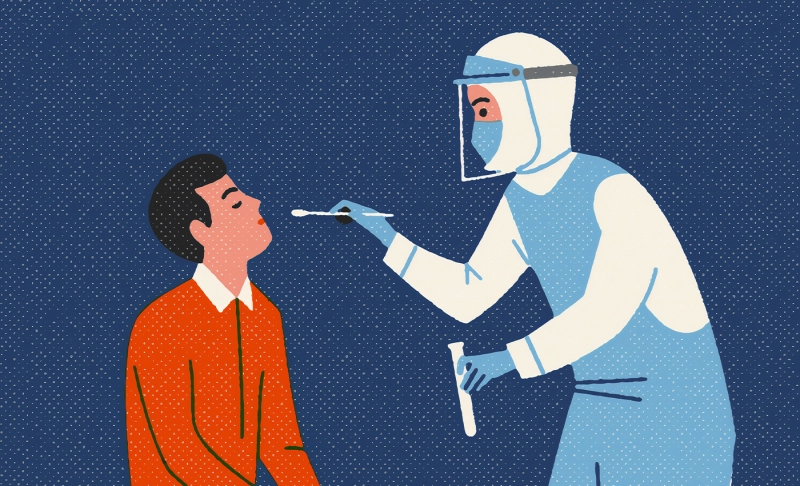February 9 2022
False: PCR tests cannot detect COVID-19 infections.

The Verdict False
Polymerase Chain Reaction (PCR) tests are an accurate and reliable method of diagnosing COVID-19.
Polymerase Chain Reaction (PCR) tests are an accurate and reliable method of diagnosing COVID-19. A Facebook video with over 6k shares propagates highly misleading claims regarding COVID-19. In the video, Reiner Fuellmich, a German lawyer, says that Polymerase Chain Reaction tests, popularly known as PCR tests, are an "outrageous fraud," and that they cannot detect COVID-19 infections. According to Vice, Fuellmich is popular among those who believe in COVID-19 conspiracy theories. Fuellmich's claim is not based on scientific evidence. Since the beginning of the pandemic, countries worldwide have been using PCR tests to detect COVID-19. The Centers for Disease Control and Prevention (CDC) states that RT-PCR Diagnostic Panel "accurately detects" the virus from the human body. Reiner Fuellmich's primary claim in saying that PCR tests do not detect infections is that high cycle thresholds show "100 percent false positives." This is not true. A PCR test is a molecular test that looks for the genetic material of SARS-CoV-2 in a person's upper respiratory specimen. Public Health Ontario explains that the test converts the virus's genetic material or RNA (ribonucleic acid) into DNA (deoxyribonucleic acid). Next, the test runs multiple "cycles" to make millions of DNA copies. This process, called amplification, is crucial in identifying tiny amounts of DNA. With more cycles run, the test makes more copies of the DNA. If the DNA piece cannot be copied, there is either no virus present in the samples or the amount is too low for detection. Jonathan Jarry, a science communicator who brings experience in human genetics, explains that a high number of cycles of amplification or cycle threshold (Ct) is not unreliable because "Ct values are somewhat relative." Samir Patel echoes Jarry's views and says that while most positive results are found after a low number of cycle runs, "any indication of the virus in a sample is important, regardless of how many cycles it took to find." Jarry states that the interpretation of PCR results relies on factors, including the type of specimen collected, symptoms of the person, other than a single Ct value. As with all tests, PCR tests are not perfect. However, it is false to state that these tests cannot detect COVID-19. The COVID-19 pandemic has given rise to a lot of potentially dangerous misinformation. For reliable advice on COVID-19, including symptoms, prevention, and available treatment, please refer to the World Health Organization or your national healthcare authority.


